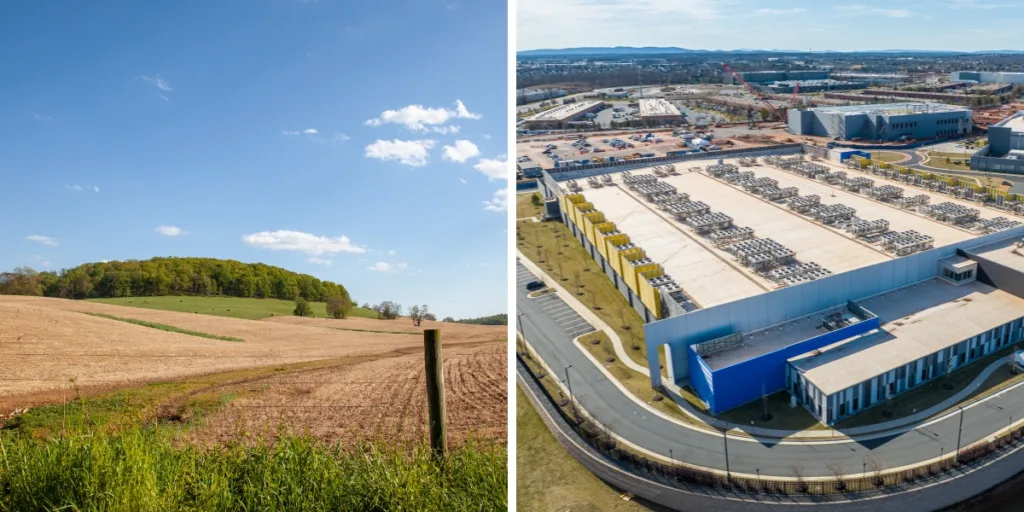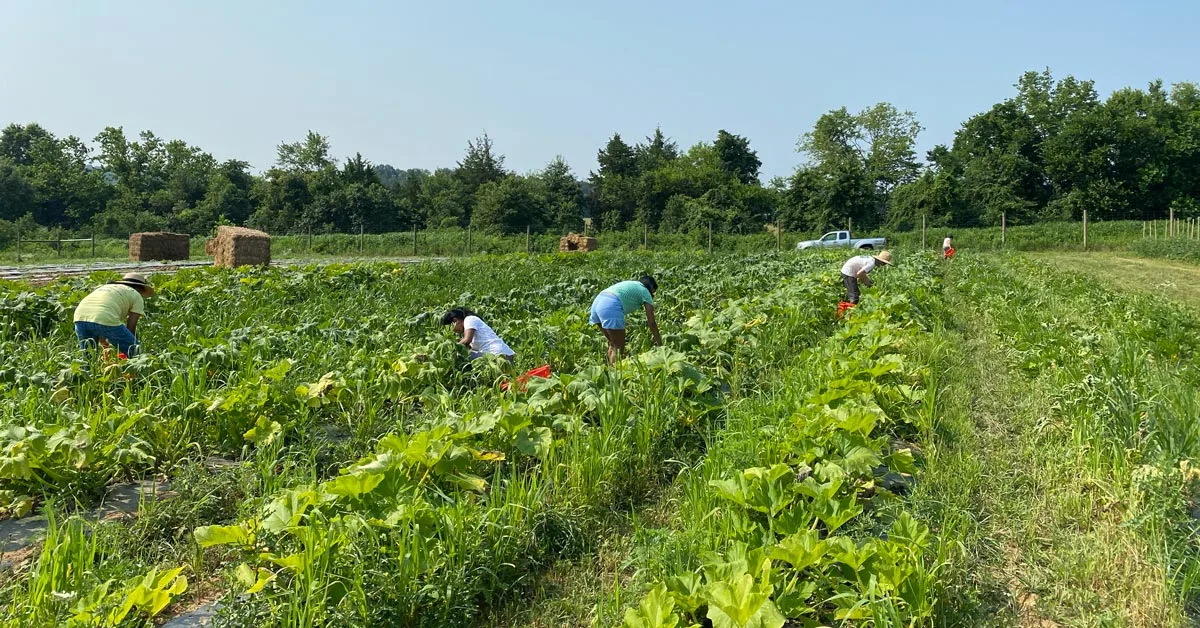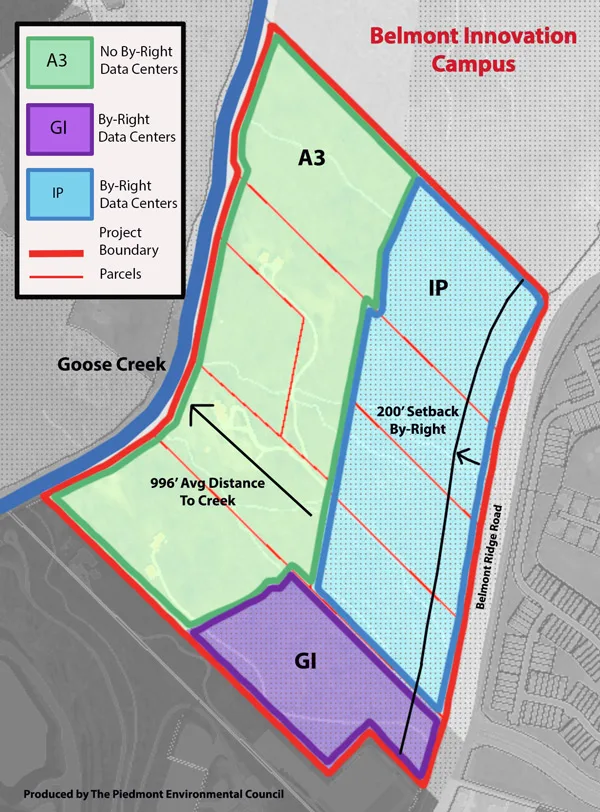
Dear Supporter,
I am writing today to let you know about two important issues that will come before the Loudoun County Board of Supervisors on Wednesday, April 10, 2024 — the adoption of the Prime Agricultural Soils and Cluster Subdivisions Ordinance Amendment (ZOAM) and reconsideration of the Belmont Innovation Campus rezoning — and to encourage you to write the Board or speak at the public hearing.
Let’s Protect Loudoun’s Best Soils
After a long process that kicked off after Loudoun adopted its 2019 Comprehensive Plan, the Board of Supervisors will vote on changes to Loudoun’s zoning ordinance to help preserve prime soils when residential housing clusters are built in western Loudoun.
In Loudoun County and elsewhere, the best land for farming is that with “prime soils,” identified in the Virginia State Code as being of statewide or local importance for food production. Prime farmland’s special combination of soil quality, location, growing season, and moisture supply means farmers can reliably and economically grow high-value crops with minimal inputs (fuel, fertilizer, pesticides and labor).
Unfortunately, we’re losing this finite resource, which can’t be artificially reproduced or replaced, to new residential development. Current zoning could allow for 11,000+ additional homes in the Rural Policy Area in the coming years. In the face of this development pressure, the current zoning ordinance makes it challenging to protect prime soils and farmable land in the county. But by requiring that prime soils be preserved during the development process, the proposed Prime Agricultural Soils and Cluster Subdivision Ordinance (ZOAM) will protect future farming opportunities in the county while maintaining existing property values (since it won’t limit subdivision or impede conservation potential).

This proposed zoning amendment comes at an opportune time since the nature of farming in Loudoun is changing. The latest USDA census tells us that Loudoun has shifted from primarily large, commercial acreages to many smaller farming operations that bring products more directly to customers through farmers’ markets, community supported agriculture (CSAs), and agritourism businesses. Today, nearly 75% of Loudoun’s 1,332 farms are smaller than 50 acres (176 farms are one to nine acres and 805 are nine to 49 acres).
Encouragingly, Loudoun is home to more beginner farmers than any other county in Virginia, and in the last five years we’ve gained 73 small farms. And yet, in the same time period, we’ve also lost 12,000 acres of farmland to development, so preserving the prime soils we have left is critical. The proposed zoning ordinance will preserve our best soils and create farms of the ideal size for a new generation of younger farmers to succeed.
Protecting Loudoun’s prime soils is essential to long-term food security for the region as development applications for cluster subdivisions continue apace. We encourage you to write the Board of Supervisors in support of the proposed zoning changes. We encourage you to stress the need to preserve 70% of prime soils on tracts to be subdivided when there are five acres of non-contiguous prime soils. Read more on the specific proposed changes to the zoning ordinance here.
Belmont Innovation Campus Rezoning – Board to Reconsider Vote this Wednesday, April 10
PEC continues to sound the alarm that the energy grid in Loudoun and the region will only be worsened by the approval of data center rezonings and special exception permits. That’s why we were encouraged by the Board of Supervisors’ historic vote on March 13 to deny the Belmont Innovation Campus rezoning application that would expand the area and potential for data center development on the site.
Unfortunately, the Board has decided to reconsider its vote at the request of the applicant. Another public hearing will be held this Wednesday evening, April 10 in Leesburg.
The applicant is still asking to double the area where data centers could be built despite reducing the requested square footage from 1.9 million to 1.3 million. If approved, the rezoning would also permit development much closer to Goose Creek than currently allowed on the properties zoned by-right [see map below].
We continue to believe the County should not give companies permission to expand data center development beyond what they can build by-right. With every new data center expansion approved by the Board of Supervisors, Loudoun is further committing itself to expensive infrastructure, negative effects on local communities, more pollution and climate impacts. These are costs that all Loudoun residents and Virginians will bear.
We hope you’ll come out on Wednesday at 6 p.m. and ask the Board of Supervisors to reject this application again. If you can’t make it in person, I encourage you to send an email to the Board with your concerns.
New Data Center Standards May Result in a Better Outcome

In December 2023, the Board adopted new standards that better account for data center development and impacts to residents’ quality of life. Because the Belmont Innovation Campus rezoning application was filed before that decision, the new standards weren’t applicable.
So while we appreciate the applicant taking steps to protect neighbors and the environment from the project beyond the County’s previous requirements, it’s still not clear whether the rezoning request would be a good deal for the community.
Alternatively, if the application is denied, a new by-right application would be held to the higher, more robust standards (for setbacks, building height reductions, noise protection, lighting, and better design) and only half the space would be developable. This could further reduce the square footage of the buildings, and thus the impact on residents.
Since the Board hasn’t asked staff to perform a side-by-side analysis of the two scenarios, there isn’t an objective basis to compare the outcomes for Loudoun residents.
My colleague Tia Earman and I have drafted some points the Board should answer before voting on the proposal. At the very least, we believe a proper comparison between the proposal and the new by-right standards will provide greater transparency and a more informed decision for the welfare of county residents. What do you think supervisors should consider before they vote again on April 10? Send a letter to the Board and share your thoughts.
I appreciate you taking the time to read this email and hope you’ll engage with these critical issues for Loudoun’s future ahead of the Board’s vote on Wednesday.
Best,
Gem Bingol
Senior Land Use Field Representative
gbingol@pecva.org
540-347-2334 ext. 7041
